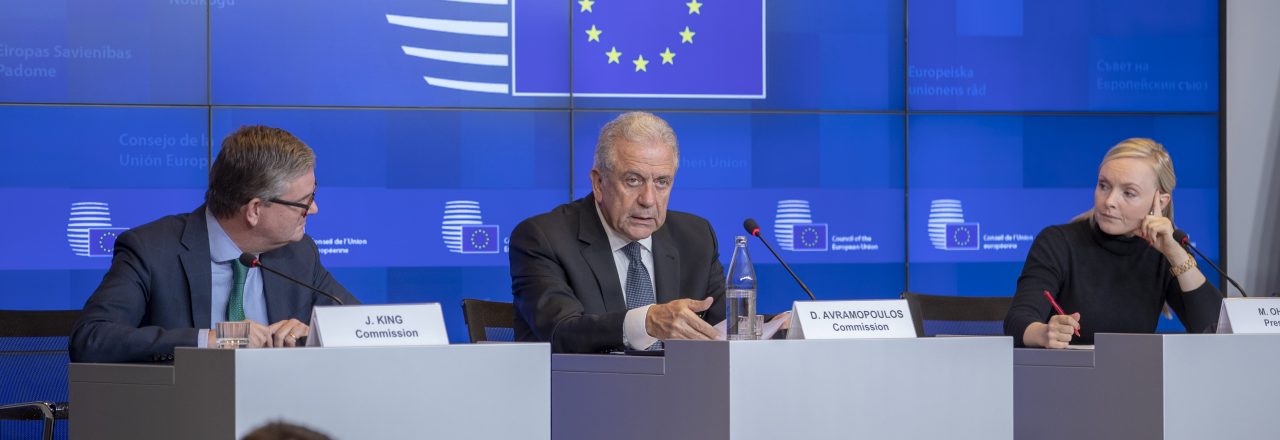
EU Interior Ministers discuss various initiatives to contain illegal migration along the Eastern and Central Mediterranean routes
The EU Interior Ministers agreed to keep dealing with all migratory routes in the Mediterranean and supporting the joint initiatives launched by Greece, Cyprus and Bulgaria regarding the eastern route, and the Malta group regarding the central route. In his remarks following what was his last Council as member of the EU, Dimitris Avramopoulos said that “arrivals on the central route are very low and we should keep them like this”. He commended the existence of over 1,000 voluntary relocations following disembarkations since the summer of 2018. He also signalled that the outcome of the Malta meeting on 23 September concerning a temporary mechanism for relocating asylum seekers rescued from the Mediterranean was presented to all EU Ministers and that some may join the initiative, although they were not formally asked to do so. Finally, he pointed to the need of continuing to strengthen the partnerships with origin and transit countries. In an attempt to defuse the impression of competing initiatives, Maria Ohisalo, Interior Minister of Filand, which holds the presidency of the Council, signalled that “achieving progress in one route does not mean to stop working on other routes”. Besides, the EU and Montenegro signed an agreement on border management cooperation between the Balkan country and Frontex. Other issues addressed at the council were the future of internal security, the rise of right wing extremism and terrorism or EU action against corruption.
- The Euromed news are edited by the team of the Euro-Mediterranean Policies Department of the European Institute of the Mediterranean -


